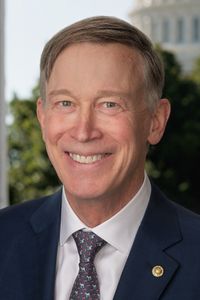John W. Hickenlooper's political career began on July 21, 2003, when he was sworn in as Denver's 43rd mayor, marking the start of his tenure at Boettcher Concert Hall. Prior to his entry into politics, John's academic pursuits had led him to earn a Bachelor of Arts degree in English and a Master of Science degree in Geology from Wesleyan University. After graduating, he found himself in Denver, where he initially worked as an exploration geologist for Buckhorn Petroleum for five years until the regional oil business collapse.
As the mid-1980s approached, John shifted his focus to the hospitality industry, spending time working on the state's first brewpub, the Wynkoop Brewing Company. In 1988, he opened the 10,000-square-foot Wynkoop restaurant/brewpub in the renovated J.S. Brown Mercantile Building, constructed in 1899. The brewpub has since undergone numerous expansions and has become one of the largest brewpubs in the world. Throughout the years, The Wynkoop Brewing Company has acquired many other Denver landmarks, earning John a National Preservation Award from the National Trust for Historic Preservation.
John has also demonstrated his commitment to community service by serving on more than thirty boards for various charities in the Denver area. In his personal life, John resides in Denver with his wife, Helen Thorpe, a writer, and their son Teddy. Notably, John is the cousin of director George Hickenlooper.


























